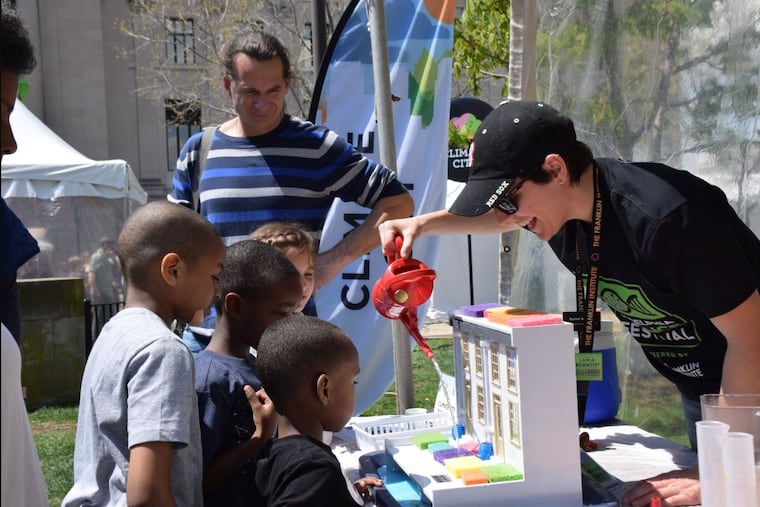We need to courageously confront climate change in 2019 | Opinion
Even our cultural identity — who we are as Philadelphians — will come to mean something different as our relationships with weather patterns and seasons, food choices, and sense of place begin to morph.

We’re used to thinking about climate change as a future problem: In 2050, temperatures will rise ... By 2100, sea levels will be ...
But the future has arrived, right now in 2019. A federal report has already updated our narrative completely, showing us that catastrophic climate change is here — and what we can do about it.
On Nov. 23, the federal government released the second volume of the Fourth National Climate Assessment (NCA4). At over 1,600 pages, the NCA4 is a comprehensive analysis of the impacts of climate change across the United States.
The report’s core messages are clear: Climate change is real. It’s happening now. It’s bad. It’s getting worse.
However, Americans are starting to prepare, and there is no better time to amplify those efforts. Here is what we know:
It’s real. It’s happening now. It’s bad: NCA4 describes the pernicious and extensive impacts of climate change wrought across the country: larger wildfires on the West Coast; thawing permafrost and degrading landscapes in Alaska; increasingly arid farmlands in the Midwest; monstrous hurricanes in the Southeast; and, here in the Northeast Corridor, intensifying downpours and flooding.
It’s getting worse: Climate change is exacerbating, and in some cases, creating vulnerabilities in our communities. These impacts will be felt worst by those with the least, in neighborhoods and populations without the capacity to prepare for and recover from extreme weather and climate-related events.
As climate change progresses, the more dangerous these impacts will become. What’s at stake? City infrastructure, water quality, our health and that of our children, and our livelihoods. Even our cultural identity — who we are as Philadelphians — will come to mean something different as our relationships with weather patterns and seasons, food choices, and sense of place begin to morph.
Americans are preparing: While the science presented in NCA4 may be daunting, the stories of positive change send a necessary, uplifting message. States, cities, and municipalities are increasingly adopting climate adaptation and mitigation plans — new policies intended to both prepare ourselves for the impacts of climate change and prevent it from further worsening. As an early leader in sustainability planning, the report cites Philadelphia’s own Office of Sustainability and its Growing Stronger: Towards a Climate Ready Philadelphia plan.
As with any new policy measure, educational partnerships can help build the social will and public capacity necessary to reach our goals. At the Franklin Institute, our Climate and Urban Systems Partnership (CUSP, www.cuspproject.org) has established best practices to engage Philadelphia in climate-change education that focuses on solutions, like using green infrastructure to lessen ambient air temperatures during heat waves and to mitigate flooding and combined sewer overflow caused by downpours. We have had the great fortune to support nearly 100 diverse partner organizations — including community organizers, research scientists, city agencies, artists, and academic institutions — and help them improve their work as it relates to climate-change science and communication.
The work doesn’t stop there. Enduring climate action will require the support of businesses, many of whom already know that sustainable practices and continued growth are not mutually exclusive. Not only is climate-change education an inroad to employee engagement; managing the effects of climate change can support corporate continuity and make progress toward social, environmental, and financial goals all at the same time.
Addressing climate change may well be the greatest challenge of our time — and we have the opportunity to rise to the challenge. For our part, we’ll continue offering the high-quality education necessary to fulfill climate action goals. But we need all hands on deck for this. If nothing else, the NCA4 is a call to action.
You ready, Philadelphia?
Darryl Williams (dwilliams@fi.edu) is senior vice president of science and education, and Rachel Valletta (rvalletta@fi.edu) is the environmental scientist, at the Franklin Institute.